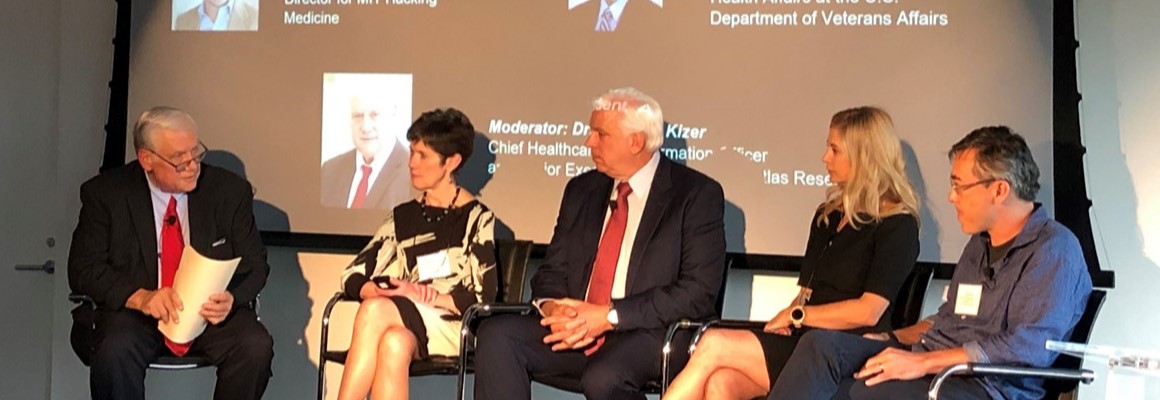
WASHINGTON, D.C. – Atlas Research’s Chief Healthcare Transformation Officer, Dr. Kenneth W. Kizer, moderated a panel on Aug. 1 on the critical role public/private partnerships play in accelerating health care innovations at the Massachusetts Institute of Technology (MIT) Hacking Medicine Grand Hack.
Leaders from government and private health care, academia and industry provided their unique perspectives of the current state of innovation; the factors required for an innovation ecosystem capable of developing and sustaining fruitful partnerships; and the phases involved in forming these partnerships.
The panel featured health care leaders from Veterans Health Administration (VHA), MIT and Samsung. These leaders included Dr. Carolyn Clancy, Deputy Under Secretary for Health for Discovery, Education and Affiliate Networks at VHA; Natalie Schneider, Vice President Digital Health at Samsung North America; Dr. Stephen Ondra, CMO, PhysIQ and former Senior Policy Advisor for Health Affairs at the U.S. Department of Veterans Affairs (VA); and Zen Chu, Health Tech Entrepreneur, Investor and Faculty Director for MIT Hacking Medicine.
“Effective partnerships can materially enhance patient experience and care,” Dr. Kizer said. “Everyone comes to the table with a diverse set of expertise. The key to successful partnerships is channeling that expertise to develop and deploy new and focused solutions that are mutually beneficial.”
“In healthcare innovation, we have created an innovation ecosystem, which includes our Innovators Network of 36 sites across the country, and our Diffusion of Excellence,” Dr. Carolyn Clancy said. “I would say, the state of Innovation at VA is strong.”
“Innovation is our business at Samsung,” Natalie Schneider said. “Samsung does a lot of external partnerships, including strategic partnerships and working with startups, that enable us to lean forward and absorb some of the external innovation going on.”
“There is no better partner for innovation in the government than VA,” Dr. Stephen Ondra said. “From organ transplant to blue button, VA has been a leader in innovation. You will never have a better partner or better mission.”
“MIT Hacking Medicine really took the Hackathon model from technology and applied it to the complexities of medicine and technology,” Zen Chu said. “We combined design and high-tech thinking with business models because it is the combination of business models with new tech that really changes care and care design.”
Atlas Research is working with Samsung Electronics America, MIT Hacking Medicine and VA and VHA Innovation Ecosystem on the MIT DC Grand Hack, a three-day event (Aug. 2-4) that brings engineers, clinicians, designers, developers and business professionals together to build solutions. Event tracks include access to health care; mental health and professional burnout; and rare and orphan diseases.
